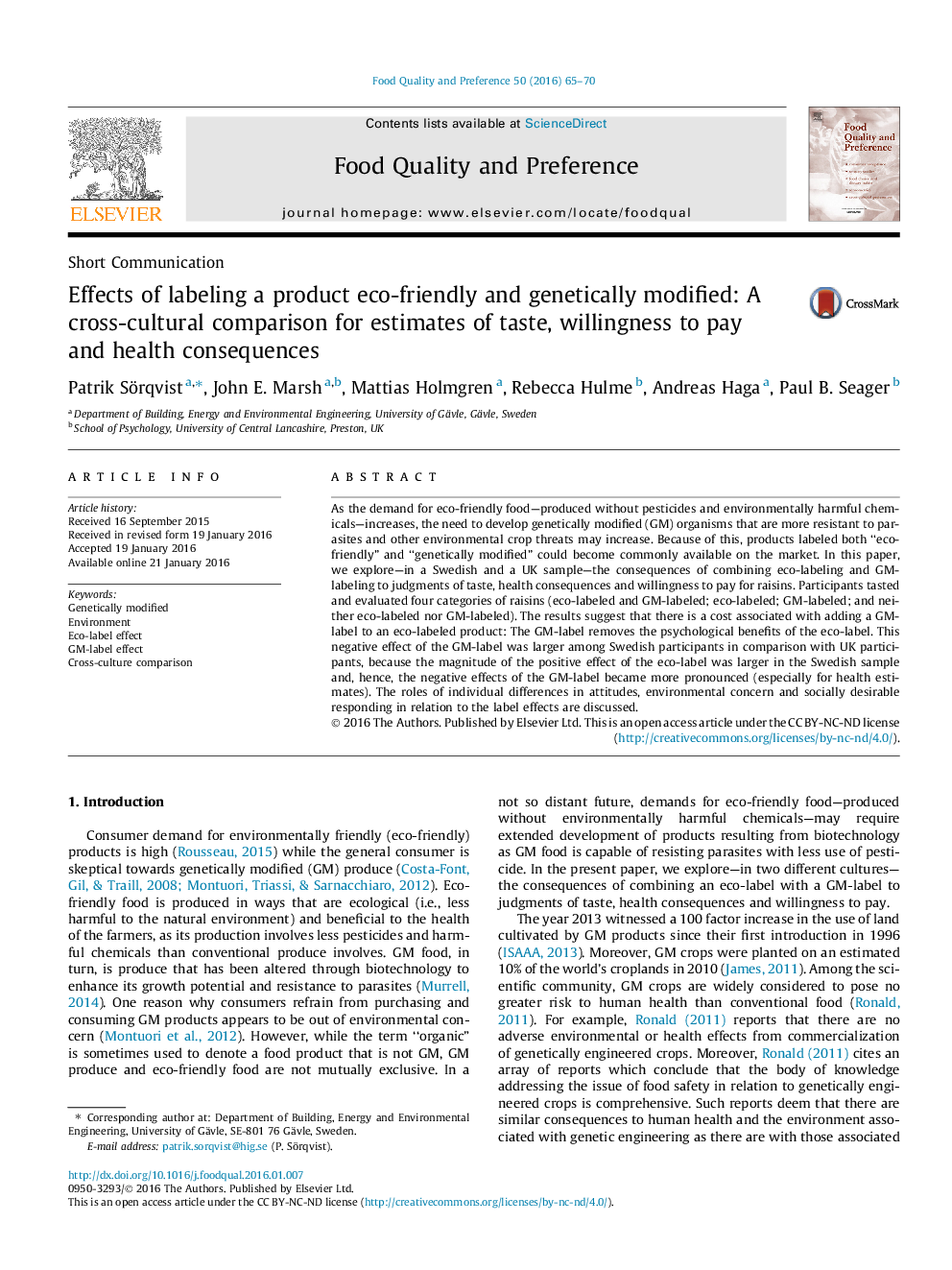| Article ID | Journal | Published Year | Pages | File Type |
|---|---|---|---|---|
| 6261102 | Food Quality and Preference | 2016 | 6 Pages |
â¢Eco-labels lead to more favorable judgments of products.â¢GM-labels lead to less favorable judgments of products.â¢When combined, GM-labels remove positive effects of an eco-label.â¢Cultural/individual differences modulate the magnitude of the label effects.
As the demand for eco-friendly food-produced without pesticides and environmentally harmful chemicals-increases, the need to develop genetically modified (GM) organisms that are more resistant to parasites and other environmental crop threats may increase. Because of this, products labeled both “eco-friendly” and “genetically modified” could become commonly available on the market. In this paper, we explore-in a Swedish and a UK sample-the consequences of combining eco-labeling and GM-labeling to judgments of taste, health consequences and willingness to pay for raisins. Participants tasted and evaluated four categories of raisins (eco-labeled and GM-labeled; eco-labeled; GM-labeled; and neither eco-labeled nor GM-labeled). The results suggest that there is a cost associated with adding a GM-label to an eco-labeled product: The GM-label removes the psychological benefits of the eco-label. This negative effect of the GM-label was larger among Swedish participants in comparison with UK participants, because the magnitude of the positive effect of the eco-label was larger in the Swedish sample and, hence, the negative effects of the GM-label became more pronounced (especially for health estimates). The roles of individual differences in attitudes, environmental concern and socially desirable responding in relation to the label effects are discussed.
